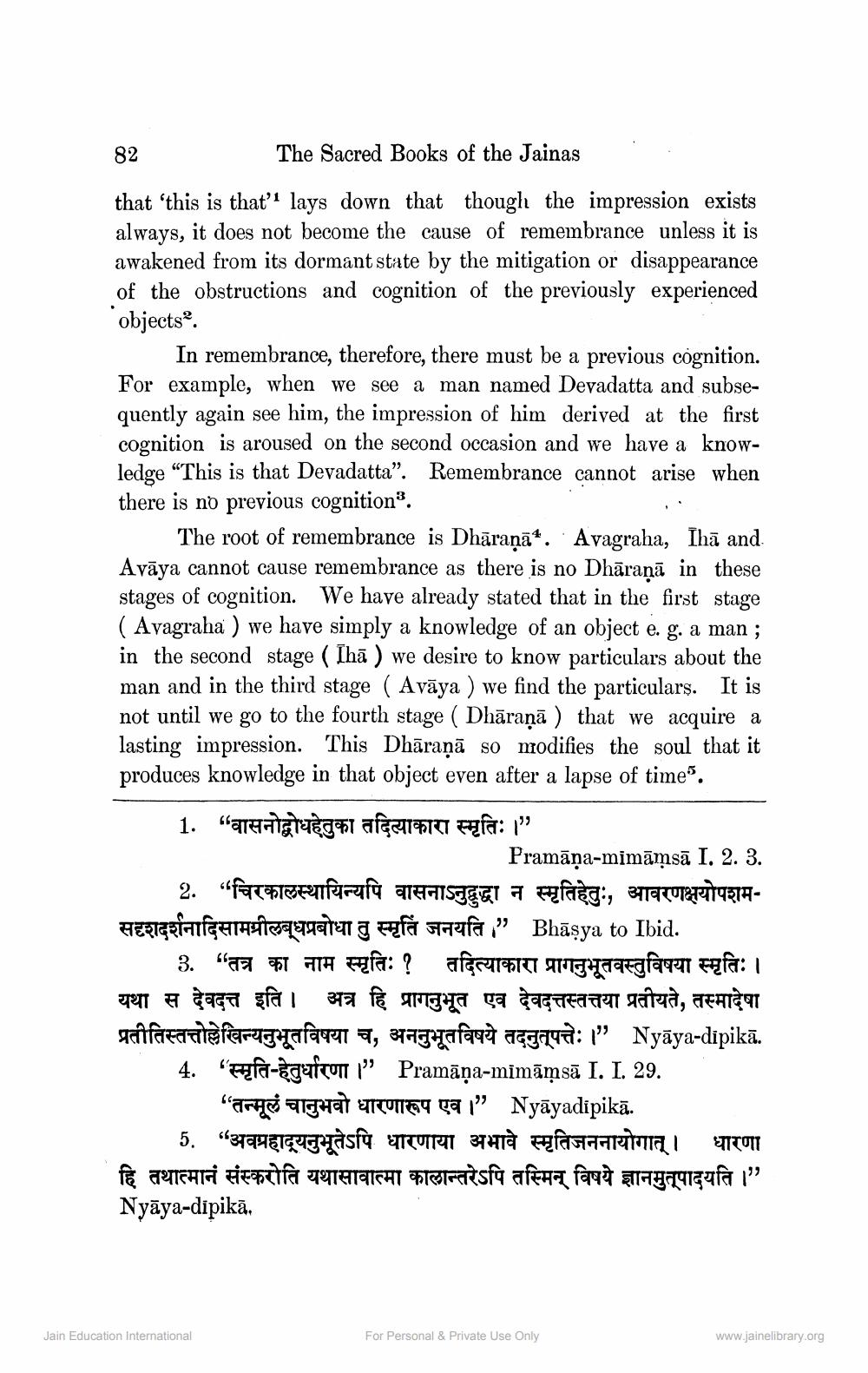________________
82
The Sacred Books of the Jainas
that 'this is that lays down that though the impression exists always, it does not become the cause of remembrance unless it is awakened from its dormant state by the mitigation or disappearance of the obstructions and cognition of the previously experienced objects.
In remembrance, therefore, there must be a previous cognition. For example, when we see a man named Devadatta and subsequently again see him, the impression of him derived at the first cognition is aroused on the second occasion and we have a knowledge “This is that Devadatta”. Remembrance cannot arise when there is nd previous cognition?.
The root of remembrance is Dhāraṇā*. Avagraha, Ihā and Avāya cannot cause remembrance as there is no Dhāraṇā in these stages of cognition. We have already stated that in the first stage ( Avagraha ) we have simply a knowledge of an object e. g. a man ; in the second stage ( Ihā ) we desire to know particulars about the man and in the third stage ( Avāya ) we find the particulars. It is not until we go to the fourth stage ( Dhāraņā ) that we acquire a lasting impression. This Dhāraṇā so modifies the soul that it produces knowledge in that object even after a lapse of time". 1. Warengtag 1 afc419147 Fla: 1
Pramāņa-mimāmsā I. 2. 3. 2. “चिरकालस्थायिन्यपि वासनाऽनुदुद्धा न स्मृतिहेतुः, आवरणक्षयोपशमसदृशदर्शनादिसामग्रीलब्धप्रबोधा तु स्मृतिं जनयति " Bhāsya to Ibid.
3. "Ta 87 ATA para: ? afcrilat atauaaegfa fafa: 1 यथा स देवदत्त इति। अत्र हि प्रागनुभूत एव देवदत्तस्तत्तया प्रतीयते, तस्मादेषा geitfarantefaragozafament 9, 37agutafaut aqgnya: 1" Nyāya-dipikā. 4. "fa-egafcun" Pramāņa-mimāmsā I. I. 29.
True alghat rullan ga” Nyāyadipikā. 5. "37anelcuetasfà ecurriT 3THTÀ pasarial TOT हि तथात्मानं संस्करोति यथासावात्मा कालान्तरेऽपि तस्मिन् विषये ज्ञानमुत्पादयति ।" Nyāya-dipikā.
Jain Education International
For Personal & Private Use Only
www.jainelibrary.org




